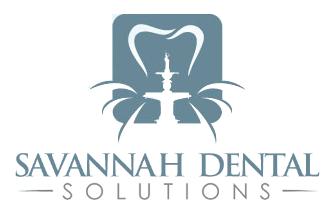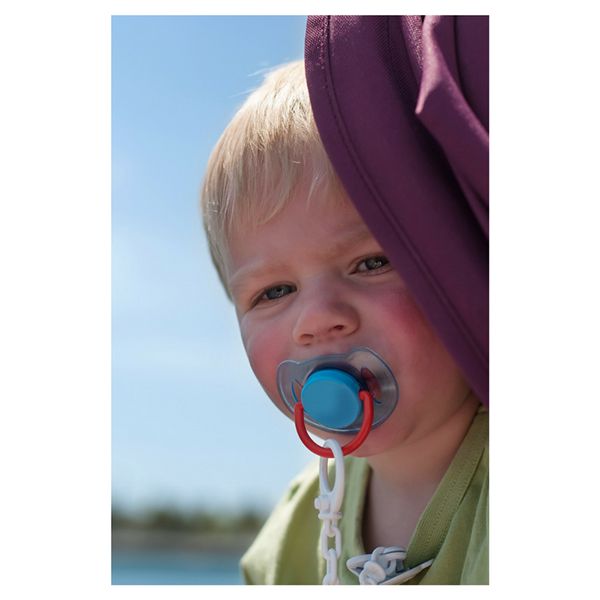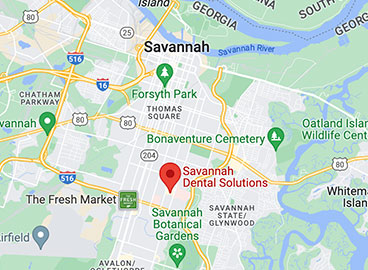Facts vs. Myths About Baby Pacifiers
Baby pacifiers inspire a great deal of debate among parents. Some argue that their kids will not fall asleep without using one, while others claim that even brief pacifier use can destroy a baby’s developing teeth. In reality, pacifiers are neither as dangerous as some believe or as safe as others claim. Here’s a look at the fears versus the facts.
Child Age
Infants have a strong sucking reflex, and find pacifiers to be soothing. Sucking on a pacifier can regulate how deeply a baby sleeps, reducing the chances of Sudden Infant Death Syndrome (SIDS). Pacifiers have not been shown to cause any harm to the oral health or development of babies under 2 years of age, and the benefits are significant, so pacifier use IS recommended for this age group.
For children aged 2 and above, though, things are different. Those who still use pacifiers or suck their thumbs should be discouraged. These behaviors could interfere with oral development, misalign the baby teeth, and put children at risk for ear infections.
Pacifier Design
Pacifier design is another vital consideration. For example, latex nipples should be avoided, as they can lead to a latex allergy and are at risk for babies biting through them. A silicone nipple is highly preferred.
Plastic shields are nearly ubiquitous on pacifiers, and there is no significant difference between colors and shapes. However, the shield must have holes to prevent choking.
It’s easier for a baby to grasp a button on the back of the pacifier, but a ring back is easier for parents to retrieve when dropped. Likewise, a glow in the dark back makes late-night retrieval simpler. A nice, but not required, feature is an automatic cover that will protect the nipple when the pacifier is dropped.
Pacifier Safety
Like any object, a pacifier may be made more or less safe depending on the precautions that are taken. For example, any attachment cord should be no longer than 6 inches to minimize choking risks. Glued on novelty parts are generally not safe, as they may come off and form a choking hazard. Although it is generally safe for a baby to fall asleep sucking a pacifier, it should never be inserted into the mouth of a baby that is already sleeping. The pacifier should be washed daily with a mild soap solution and thoroughly rinsed.
In addition, be careful not to use the pacifier as your default solution for a fussy baby. Babies cry for reasons ranging from hunger to a full diaper. Make sure your baby is clean and fed, and that plenty of cuddles are given, before offering the pacifier. Ideally, the pacifier should be a tool for bedtime and unusually fussy periods rather than a simple go-to.
Weaning Your Baby Off a Pacifier
Since your baby should not use a pacifier past the age of 2, it is best to start the process of weaning around the first birthday. This provides plenty of time to make the transition without worrying about your child’s oral health.
Start with some simple restrictions on pacifier use, and gradually increase those restrictions. For example, you might allow use of the pacifier only at home, and then only at naptime and bedtime. Insist that your child remove the pacifier when talking. Minimize overstimulation and be sure that the child is getting plenty of sleep and does not get too hungry, as she is more likely to crave the pacifier when not feeling her best. Offer plenty of love and support instead of the pacifier.
When you and your child are ready, quit the pacifier cold turkey. It is easiest to do this when connected to an event, such as a family vacation, but you can just choose a date. Expect some crying and anger. Remain calm, offer comfort, and remind the child in a matter of fact way that the pacifier is no longer an option. It can be tough, but the longer you wait, the more difficult it will be for both you and your child.
Married dentists Chad and Alexandra Schnabel welcome you to Savannah Dental Solutions. From caring children’s dentistry to high-tech cosmetic procedures and even full-mouth reconstruction, we blend the latest technology with traditional customer-oriented values. To start your journey to better oral health, call us today at (912) 354-1366.







